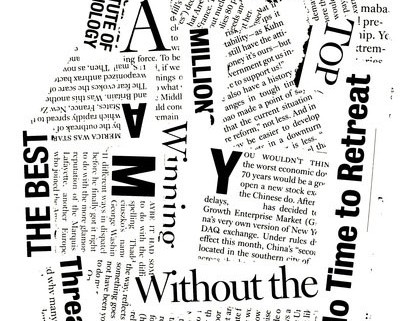Engineering & Manufacturing Influence News – Issue 7 November 2012

ISSUE 7 – N0VEMBER 2012
Editorial
this month’s newsletter updates members with the latest manufacturing news and also includes three new sections; a book review of Andrew Liviris’s book on how to regenerate America’s manufacturing industry; a new feature identifying Australian companies that are succeeding in this tough global market and a letters’ section that invites readers to ask questions or give feedback.
The latest automotive job losses further support last month’s analysis of the industry, endorsing the message that the companies and the government’s current policies will not prevent the slow death of the industry in Australia without a radical and transparent rethink. Australia’s need to dramatically change its productivity performance is endorsed by the Productivity Commission’s outgoing boss’s public statements, solidly supported by many industry bosses and analysis experts. Industrial relation changes is still not even considered by the current government as demonstrated by the latest tweaking of the Fair Work rules and Shorten’s proposal to stack the board. Cochlear, this month’s featured company clearly demonstrates the adversarial nature of IR in this country. They have been involved in a 5 year battle with the AMWU over their EBA leading Cochlear CEO to comment that “They [unions] don’t have relevance without conflict”.
It seems a clear message to everyone, except perhaps the government, is that the mining boom has peaked and Australia needs to assertively restructure its economy, expand its industrial base and as Liviris clearly states put manufacturing – leading edge manufacturing – at the forefront of its policies. The recent figures that show Australia as one of the most costly countries in the world seems to fall on deaf ears as this very left leaning, social democratic government continue to increase social spending without appropriate revenue. A recent presentation by financial analyst Bridgette Leckie stated that while America appears to be coming out of recession and Europe stabilising but still uncertain; Australia, with its current policies, has only possibly two more years of performance before the economy reaches a massive cliff!
Australian Dollar is the dearest of top economies according to a study produced in the ‘AGE’ October 23rd. We have the third most expensive currency in the world and the most expensive of the world’s 20 largest economies, with only Norway and Switzerland more expensive to do business in based on Purchasing Power Parity (PPP). This makes us ($161) much more expensive than USA ($100) and Germany ($105) in terms of productivity value and when compared with China ($67) and India ($41) the size of the global predicament can be clearly appreciated.
Car News – since last month’s article, Holden have cut 170 jobs and Ford affected their 220 forced redundancies from the 440 people loss announced in July. While Autodom are back at work, their future in the hands of the receiver is still very uncertain. In light of the anti-Japanese sentiment in China, Koita a Toyota parts supply in China has suspended plans to triple production leaving their new factory half built. In addition, Sumitomo Electric and Toyo Type companies are rethinking plans to expand and refocusing their expansion plans on Thailand, Vietnam, Myanmar, Indonesia and Cambodia (AFR 13/11).
The government has rejected calls to reconsider buying overseas built nuclear submarines so as to support the manufacture of conventional subs in SA where manufacturer ASC employs 2500 people on three sites in Adelaide and Perth and is the leading builder for the air warfare destroyer and maintains the aging Collins class sub fleet.
Qantas axed 500 aircraft maintenance jobs in Sydney and Avalon as the next phase of restructuring that is seeking to save $110m annually (AFR). The company has said that before these current efforts, its number of engineers per aircraft was about 40 compared to about 20 per aircraft at British Airways.
Outgoing Productivity Commission chairman Gary Banks has criticised Labor’s reform agenda by calling for an overhaul of the Fair Work Act, GST increases and a winding back of industry handouts including the car companies. His extensive proposals, which included deregulation of doctors and lawyers, changes to teachers’ recruitment and pay but mainly focuses on issues directly associated with productivity and was roundly supported by Reserve Bank Chairman Glenn Stevens (AFR 2/11).
Good Australian Companies – With the gloom and doom about Australian manufacturing, the newsletter will each month try to identify Australian companies that are succeeding in this tough globalised market. One such company is Cochlear the hearing specialists, whose CEO Chris Roberts was featured in this month’s ‘AFR/Boss’ magazine. Streamlining manufacturing Systems have underpinned Cochlear’s ability to keep its cost of goods sold at about 25% despite the appreciating dollar. Also instrumental to the company’s success has been its relationship with its 800 manufacturing staff and crucial to this is their employee consultative committee that includes workers from each of the company’s main functions, but no one directly representing the AMWU. Wage rates are 50% above award rates and wage rises occur when staff learn new skills set out in a skills matrix, which has assisted 96% of staff to be paid at the top level of the matrix. At the same time, Cochlear have been involved in a 5 year EBA fight with the unions. The company is still continuing to negotiate in good faith with the unions but this is not stopping the company and its workers drive for productivity improvements.
Book Review – Andrew Liviris “Make it in America: The Case for Reinventing the Economy” published by John Wiley and Sons, New Jersey USA.
The Australian born Liviris is the President, Chairman and CEO of Dow Chemical Company, a $60billion global specialty chemical, advanced materials, agro sciences and plastics company, based in Michigan USA. He was also recently appointed to the Co-Chair of President Obama’s Advanced Manufacturing Partnership in the US because of his strong advocacy for the criticality of Manufacturing to the long term health of a nation’s economy.
The book focuses heavily on the manufacturing issues in the US and some of the policies Dow have employed to continue their global expansion, explaining how a manufacturing sector creates economic value at a scale unmatched by other sectors and how central manufacturing is vital in creating jobs, both inside and outside the factory.
In his concluding chapters, Liviris lays out a policy framework for economic growth:
- Make it easier for businesses to keep or locate their operations in the United States.
- Remake the manufacturing sector with a focus on advanced, high value products.
- Create an economy that can sustain itself and can, in turn, produce long-term job creation and economic growth.
- Prepare the next generation’s workforce for the changing economy.
- Improve America’s global competitiveness in both the short and the long term.
He then expands on his short term measures under the banner of ‘Immediate Impact Agenda’
- Changing the way the US taxes – An area highly pertinent for Australia, he explains how America is still stuck at a 40% corporate tax rate compared to the European norm of 24%.
- National Incentive Strategy – He points out that many countries are offering further financial incentives to relocate such as free land, low interest loans and even up to 80% start up salary support. While this could be considered as corporate welfare, Liviris asks America to recognise this is the competitive nature of globalised manufacturing.
- Regulatory Policy – again with messages for Australia, Liviris points out the need to simplify and harmonise rules; design performance standards to assist creativity not stifle it, increase collaboration between government and business, and benchmark regulations against other developed countries.
- Continue to expand trade policies.
In his longer term policies he identifies:
- A new look at education to first increase the number of ‘Science, Technology, Engineering and Math (STEM) graduates. He expands on this through actions to improve teacher quality, lift national standards and improve skills training. He proposes a number of positive incentives including tax credits to employers to encourage continuing education for existing workers and scholarships for STEM courses.
- Change the immigration rules for graduates and other valued skilled people and increase the opportunities for entrepreneurs to set up in America.
- Increase the innovation capacity and increase global competitiveness by using energy as a underpinning resource. America is currently making great strides in self reliance through shale oil resources but on top of this Liviris wants America to put a price on carbon and aggressively pursue renewable energy expansion by supporting energy innovation. Linked with this Liviris proposes that energy costs to America industries should be reduced to increase their competitiveness. This is also a policy that Liviris endorsed strongly for Australia in his recent speech at the Australian Press Club.
- Liviris recognises, again as Australia has, that America’s infrastructure is a limitation to productivity improvements and providing incentives for private- public partnerships and the creation of a national infrastructure bank.
While the book is heavily focused on the analysis of American issues, it has many parallels for Australia. The good news for America is that some of these considerations are already being adopted into a national strategy that is seeing, as an example, companies like Brook Brothers, Adidas and Ford, moving their operations back to America. The issue for Australia is that we are still waiting for positive and affirmative action.
Letters to the Editor:
One of our readers, Wayne, has written to the newsletter asking for advice;
“I am again planning the family festivities this Christmas. In the past we have always been able to afford a lavish Christmas, thanks to some money my uncle John left us in his will and then of course the old credit card but things are getting tougher with the cost of living. My eldest son is away working in the WA mines but he sent a very generous sum for us to spend this Christmas. My middle child is disabled so I want to get her a good wheelchair and my other son has just been made redundant from a manufacturing apprenticeship and so I want to get him one of those little foreign cars so he can attend the job centre. My youngest daughter is still at school and last year we built her a basketball court in the back garden to help her studies, so this year we thought we might actually get her some study books. We are always able to put on a good spread as my wife Julia’s job means she gets lots of gifts at Christmas and this year we are inviting the immigrant family from across the road to have dinner with us so there is more to feed. But my question is – we always have lots of lights on the house to make the neighbourhood happy and appear prosperous but is this what we should do this year? Will it add to global warming or should I get some solar panels to provide the energy? I can buy these with some money I put aside for a holiday next year. My next door neighbour, Joe is quite miserly, just has a battery driven three wise men scene and says we shouldn’t waste our money but I see the lights, not for us but for the entire street to enjoy. Should I keep spending the money?
Editor’s response; – Wayne, keep spending; the economy is strong and the government gave you money for the carbon tax to keep on spending! Don’t you get a great feeling when your house is the envy of the street? So you can be good ‘King Waynelas’ looking out for all on the feast of Stephen!



